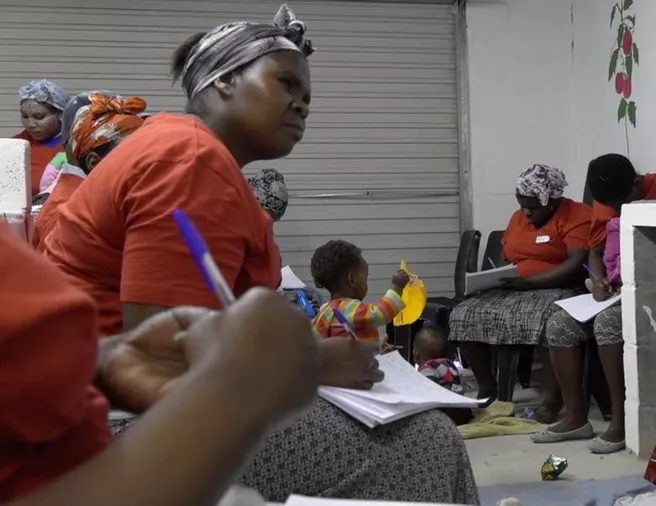Background and objective
The limited availability and accessibility of affordable, high-quality nutrient food options are at the core of the food insecurity problem in townships. The authors conducted a photovoice study with 18 South African township residents who grew their own food as part of a community gardening program in Masakhane, a township located in the Western Cape (South Africa). To them, growing own food is one important way to fight food insecurity. However, there is little space available around people’s private homes, so that many township residents cannot install a home garden. Community gardens represent a viable option: they are a form of gardening that allows individuals to produce crops in a shared space and together with other community members.
Design and results
The results of the content analysis of photo and interview information are organized into two thematic categories: Motivation to participate in the community garden and effects of participation in the community garden. The findings show that gardeners value the health benefits of the produce that can be grown in the gardens. The study revealed positive effects along three dimensions of health: physical, social, and mental — factors that the World Health Organization has identified as the three most important health contributors. The results show that informants are motivated by better food access, increases in knowledge, financial savings, and independence. Informants perceive various positive effects from their involvement: they share knowledge, experience psychological and social effects, and engage in knowledge transfer practices for resource integration and value creation when they participate in the program. Some informants even founded there own start-up company, offering healthy foods to other township residents.
Implications
The results of the study are relevant for both policy makers and local organizations. With food insecurity as a prominent topic on the South African agenda, the results can inform policy makers about the attractiveness of community gardening as one instrument to counter food insecurity at a local level from the perspective of informants. The study shows that community gardens can play a vital part in reducing food insecurity and increasing community health. This is particularly helpful in the country of South Africa, a country that has natural resources and biodiversity, but faces challenges in relation to managing income and education disparities as well as major health concerns.
Contact
Chair of Sport and Health Management
Prof. Dr. Jörg Königstorfer
Secretary: Mirjam Eggers
Uptown Munich Campus D
Georg-Brauchle-Ring 60/62
80992 Munich Germany
Phone: +49.89.289.24559
Fax: +49.89.289.24642
info.mgt@sg.tum.de
